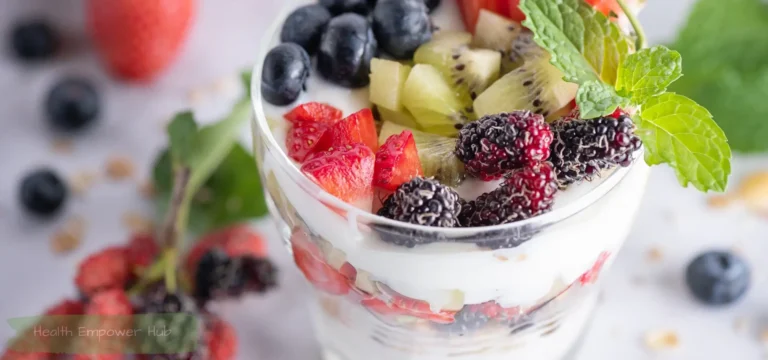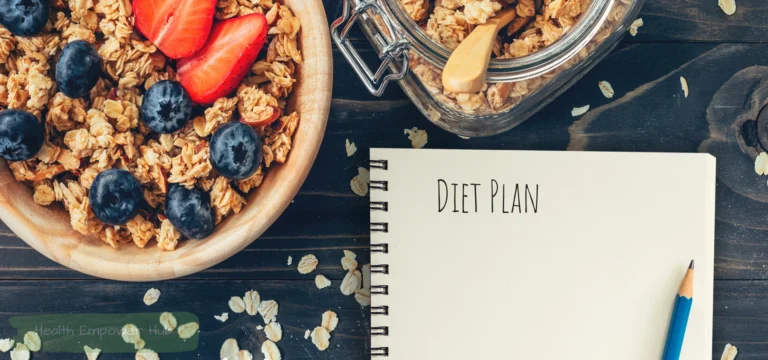Avocado has long been misunderstood as just another high-fat fruit, shunned by those on a quest for a healthier lifestyle. But let’s set the record straight – avocados are not only delicious but also packed with a plethora of nutrients that can supercharge your well-being. In this guide, we’ll delve into the fascinating world of avocado nutrition facts, uncovering ten surprising facts that will make you fall in love with this green gem all over again.
Benefits of Avocado Nutrition
Avocados are not just a trendy addition to your Instagram-worthy avocado nutrition facts toast; they are nutritional powerhouses loaded with health benefits. Let’s take a closer look at why you should make room for avocado nutrition facts on your plate:
- Heart-Healthy Fats: Contrary to popular belief, not all fats are created equal. Avocados are rich in monounsaturated fats, which can help lower bad cholesterol levels and reduce the risk of heart disease. So, go ahead, indulge in that creamy guacamole guilt-free!
- Nutrient Density: Avocados are jam-packed with essential vitamins and minerals, including potassium, vitamin K, vitamin E, and folate. These nutrients play crucial roles in maintaining bone health, boosting immunity, and supporting overall well-being.
- Weight Management: Despite their creamy texture, avocados can actually aid in weight management. The combination of healthy fats and fiber helps keep you feeling full and satisfied, curbing cravings and preventing overeating.
- Skin and Hair Benefits: Looking to achieve that coveted glow? Avocados can work wonders for your skin and hair. Their high vitamin E content nourishes the skin from within, while vitamin B7 promotes healthy hair growth and strengthens nails.
- Digestive Health: Avocados are a fantastic source of dietary fiber, which is essential for a healthy digestive system. Fiber helps regulate bowel movements, prevents constipation, and promotes gut health, keeping your digestive tract happy and functioning smoothly.
- Versatility: One of the best things about avocados is their versatility. Whether mashed into guacamole, sliced on toast, or blended into a smoothie, there are countless ways to incorporate avocados into your diet and reap their nutritional benefits.
- Antioxidant Power: Avocados are loaded with antioxidants, including lutein and zeaxanthin, which help protect your eyes from age-related macular degeneration and maintain optimal vision.
- Blood Sugar Regulation: Despite their creamy texture, avocados have a low glycemic index, meaning they won’t cause a rapid spike in blood sugar levels. This makes them an excellent choice for individuals with diabetes or those looking to manage blood sugar levels.
- Brain Health: The healthy fats found in avocados are not only good for your heart but also for your brain. Studies have shown that the monounsaturated fats in avocados may help improve cognitive function and protect against age-related cognitive decline.
- Boosted Nutrient Absorption: Adding avocado to your meals can enhance the absorption of fat-soluble nutrients like vitamins A, D, E, and K. So, next time you whip up a salad, don’t forget to toss in some creamy avocado slices!
Nutritional Breakdown of Avocados
There’s more to avocado nutrition facts than meets the eye. While some may dismiss them as just another fatty fruit, the truth is they boast an impressive nutritional profile that makes them a must-have addition to any healthy diet. Let’s dive into the nutritional breakdown of avocados and uncover the wealth of goodness they have to offer.
- Macronutrients: Avocados are primarily composed of healthy fats, with approximately 77% of their calories coming from fat. However, don’t let that scare you off – these are mostly monounsaturated fats, which have been shown to have numerous health benefits, including lowering bad cholesterol levels and reducing the risk of heart disease.
- Fiber Content: One medium-sized avocado contains about 9 grams of fiber, making it an excellent source of this essential nutrient. Fiber is crucial for digestive health, promoting regular bowel movements and preventing constipation. It also helps keep you feeling full and satisfied, which can aid in weight management.
- Vitamins and Minerals: Avocados are packed with vitamins and minerals, including potassium, vitamin K, vitamin E, and folate. Potassium is essential for maintaining healthy blood pressure levels and proper muscle function, while vitamin K is crucial for blood clotting and bone health. Vitamin E is a powerful antioxidant that helps protect your cells from damage, while folate is important for fetal development during pregnancy.
- Antioxidants: Avocados contain a variety of antioxidants, including lutein and zeaxanthin, which are important for eye health. These antioxidants help protect your eyes from age-related macular degeneration and maintain optimal vision as you age.
- Phytochemicals: Avocados also contain various phytochemicals, such as beta-sitosterol and glutathione, which have anti-inflammatory and antioxidant properties. These compounds help reduce inflammation in the body and protect against chronic diseases like cancer and heart disease.
- Caloric Content: While avocados are relatively high in calories compared to other fruits and vegetables, their nutrient density more than makes up for it. Plus, the healthy fats found in avocados can actually help keep you feeling full and satisfied, reducing the likelihood of overeating.
- Low Carb Content: Despite their creamy texture, avocados are relatively low in carbohydrates, making them suitable for low-carb and ketogenic diets. This makes them a great option for those looking to control their carbohydrate intake while still enjoying delicious and nutritious foods.
Vitamins and Minerals in Avocados
Now that we’ve explored the nutritional breakdown of avocado nutrition facts, let’s take a closer look at some of the key vitamins and minerals they contain and the role they play in promoting overall health and well-being.
- Potassium: Avocados are an excellent source of potassium, with one medium-sized avocado containing more potassium than a banana. Potassium is essential for maintaining healthy blood pressure levels and proper muscle function. It also helps regulate fluid balance in the body, which is important for overall hydration and kidney function.
- Vitamin K: Avocados are rich in vitamin K, a fat-soluble vitamin that plays a crucial role in blood clotting and bone health. Adequate intake of vitamin K is important for maintaining strong and healthy bones, as it helps facilitate the mineralization process.
- Vitamin E: Avocados are a good source of vitamin E, a powerful antioxidant that helps protect your cells from damage caused by free radicals. Vitamin E is important for maintaining healthy skin and hair, as well as supporting immune function.
- Folate: Folate, also known as vitamin B9, is essential for fetal development during pregnancy. Adequate intake of folate is important for preventing neural tube defects and other birth defects. Avocados are a great source of folate, making them an excellent choice for expectant mothers.
- Other Vitamins and Minerals: In addition to potassium, vitamin K, vitamin E, and folate, avocados also contain small amounts of other vitamins and minerals, including vitamin C, vitamin B6, magnesium, and copper. These nutrients play various roles in the body, from supporting immune function to promoting nerve and muscle function.
In conclusion, avocado nutrition facts powerhouse packed with essential nutrients and health-promoting properties. From their heart-healthy fats to their abundance of vitamins and minerals, avocados offer a myriad of benefits for overall health and well-being. While they may not be suitable for everyone, for the majority of individuals, avocados can be enjoyed as part of a balanced diet to reap their numerous health rewards. So go ahead, indulge in that creamy avocado toast or savory guacamole – your body will thank you for it!
Frequently Asked Questions (FAQs)
1. Are avocados really good for you?
Absolutely! Avocados are loaded with healthy fats, fiber, vitamins, and minerals, making them a nutritious addition to any diet. From promoting heart health to supporting digestion and skin health, avocados offer a wide range of health benefits.
2. How can I incorporate more avocados into my diet?
There are endless ways to enjoy avocados! You can spread them on toast, add them to salads, blend them into smoothies, or even use them as a creamy topping for tacos and burgers. Get creative and experiment with different recipes to find delicious ways to incorporate avocados into your meals.
3. Are there any downsides to eating avocados?
While avocados are incredibly nutritious, they are also calorie-dense due to their high fat content. As such, it’s important to enjoy them in moderation, especially if you’re watching your calorie intake. Additionally, some people may be allergic to avocados, so it’s important to be mindful of any adverse reactions.
4. Can avocados help with weight loss?
Yes, avocados can be beneficial for weight loss! Despite their calorie density, the combination of healthy fats and fiber in avocados helps keep you feeling full and satisfied, reducing the likelihood of overeating. Plus, their nutrient density makes them a great choice for satisfying cravings while still nourishing your body.
5. Are avocados keto-friendly?
Absolutely! Avocados are low in carbs and high in healthy fats, making them an excellent choice for those following a ketogenic diet. They provide a satisfying source of energy while helping to keep you in ketosis.
6. Are there any risks associated with eating avocados?
For most people, avocados are safe to eat and offer numerous health benefits. However, some individuals may experience allergic reactions to avocados, such as itching, swelling, or difficulty breathing. Additionally, those watching their calorie intake should be mindful of portion sizes due to avocados’ calorie density.
7. Can avocados help improve skin health?
Yes, avocados are great for your skin! Their high vitamin E content provides powerful antioxidant protection, helping to combat oxidative damage and keep your skin looking youthful and radiant. Additionally, the healthy fats in avocados help moisturize and nourish your skin from the inside out.
8. How do I know if an avocado is ripe?
A ripe avocado should yield to gentle pressure when squeezed in the palm of your hand. If it feels too firm, it’s not quite ripe yet. If it feels overly soft or mushy, it may be overripe. Additionally, you can check the color – a ripe avocado will have dark green to almost black skin.
9. Can I freeze avocados?
Yes, you can freeze avocados! Simply scoop out the flesh, mash it, and place it in an airtight container or freezer bag. Frozen avocados can be used in smoothies or thawed and added to recipes like guacamole or dips.
10. How long do avocados last once they’re ripe?
Ripe avocados can be stored in the refrigerator for a few days to extend their shelf life. To prevent them from turning brown, you can sprinkle them with lemon or lime juice before storing them in an airtight container. Alternatively, you can freeze ripe avocados for longer-term storage.










